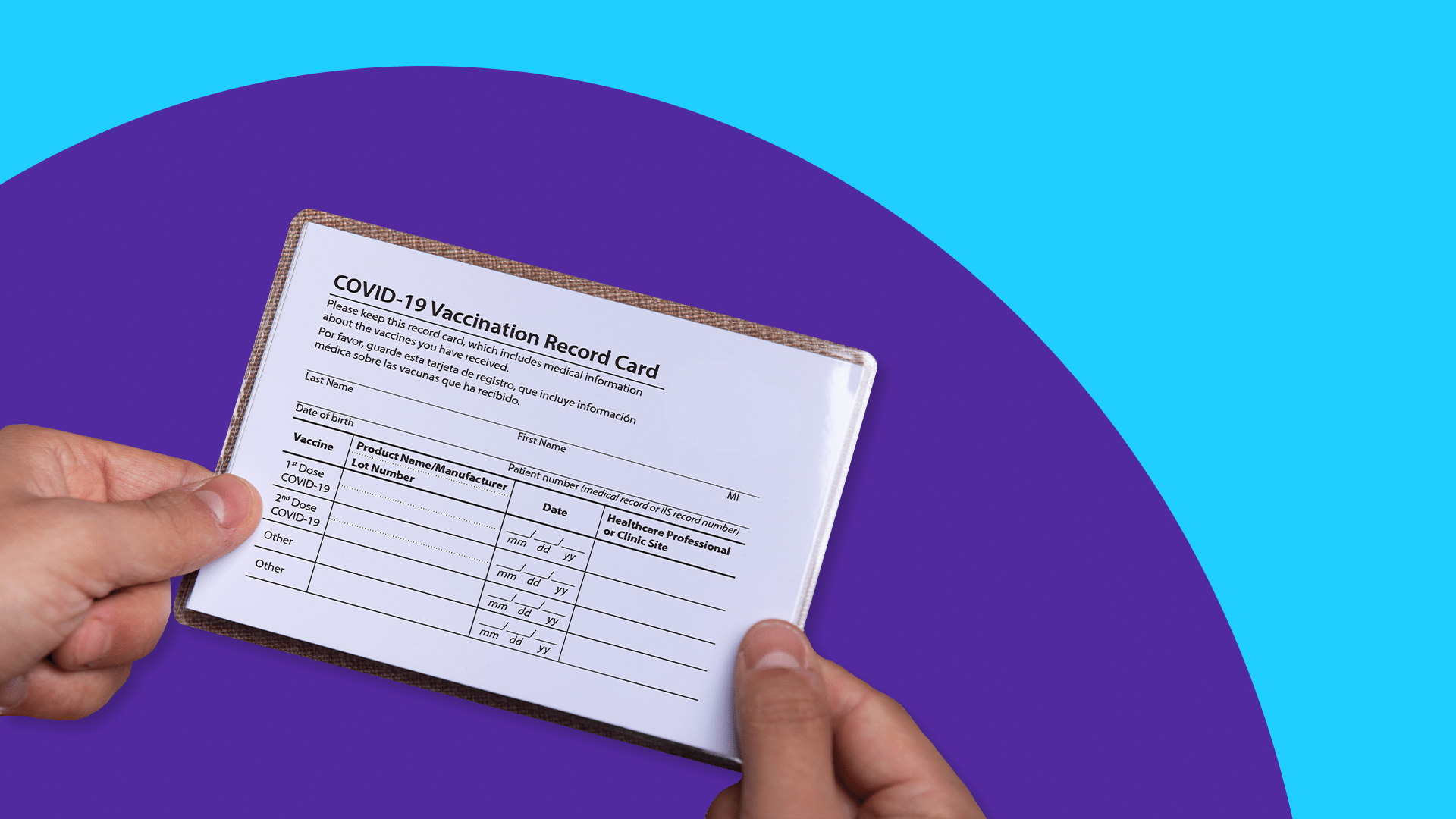In the pandemic era, the newest must-have accessory is the COVID vaccine card. Proof of COVID vaccination is now required for entry to many countries and to access many indoor activities in major cities. That’s why knowing how to store your vaccine card is very important.
What happens if you lose your vaccine card?
If you lose or damage your COVID vaccination card, don’t panic. The fastest way to replace a lost vaccine card or verify vaccination is to go to the provider directly or your local health department.
If you received your vaccine at a pharmacy or doctor’s office, “reach out to the pharmacy or provider who gave you your vaccine,” says Erin Thompson, Pharm.D., a clinical pharmacist at The Toledo Clinic. “They should be able to provide you with your vaccination record.” Vaccine providers are required to report the record of your COVID-19 vaccine to the immunization information system (IIS). IIS is a state-specific database where your vaccination status can be looked up. Other vaccines may be reported, but it is not a requirement.
If you received your vaccine from a state-run site, your local health department should be able to access this system to retrieve your record.
If you registered for v-safe when you received your first COVID vaccine you can track and access your vaccine records through this platform. It will also remind you when you are due for additional doses (if applicable), but it’s not an official record.
RELATED: How to request copies of your medical records
Where is proof of vaccination required?
Each city, state, venue, and business may have different proof of vaccination requirements based on local laws. Many major cities require proof of vaccination to enter indoor establishments like restaurants, bars, gyms, clubs, and theaters. Often, when you buy a ticket to an event or make a reservation, the venue or restaurant will send you vaccine requirements.
If not, do your research before going so that you know what will be accepted as proof of vaccination. In some cases, like restaurants, a photo of the vaccine card will work. In others, like when going through customs, you will need a physical card. Sometimes you can use a vaccine card app that relies on third party verification.
6 ways to store your COVID-19 vaccine card
There are many ways to safely store your vaccine card that prevent loss or damage, including these six methods.
1. Keep with other important documents
If you don’t need to use the hard copy often, consider keeping it in a fire- and flood-proof safe with birth certificates, wills, and other legal documents. Then, make digital copies for daily use. If it’s securely stored at home, the likelihood of loss or damage is low.
2. Get a plastic vaccination card protector
“People were laminating their cards after completing the initial series; for Pfizer and Moderna, after their second dose, and for Johnson & Johnson, after the one-time dose),” says Odelia Lewis, MD, a medical contributor to ABC News Medical Unit. However, given the need for booster doses, this isn’t the best idea.
“I would await guidance from the CDC or health department on what to do when the card fills up or possibly when we may need to go to a second card,” Dr. Thompson recommends. “There are plastic sleeves/vaccine card holders that work nicely to protect your card from spills, wear, and tear. This is what I typically recommend.”
RELATED: What to expect after the coronavirus vaccine
3. Use a vaccine card app
Many states allow residents to store vaccine cards digitally. For example, Colorado uses myColorado app, Louisiana has the LA Wallet app, Illinois uses VaxVerify, and New Yorkers can either access Excelsior Pass or NYC COVID Safe. Health departments in Arizona, Louisiana, Maryland, Mississippi, North Dakota, Washington, West Virginia, and Washington, D.C., allow residents to use MyIRMobile to store vaccine cards. It’s important to note that users need to re-upload vaccine cards after booster doses.
4. Store it in your cloud wallet
IPhone users can store vaccine cards in Apple Wallet and also keep a copy in the Health app. The WatchOS 8.1 update allows you to keep your card handy on your Apple Watch. VaxYes is another service that verifies your vaccination status and then adds your vaccination card to your Apple Wallet.
Android users can use the store vaccine cards on their devices. Samsung now allows Galaxy users to add proof of vaccination to Samsung Pay, but users have to download the IBM Digital Health Pass or CommonHealth app first.
5. Register with Clear
Airport security service Clear, allows users to download the app to add your vaccine card. Some concert and exhibition halls require that attendees use Clear to verify their vaccination status to attend a show.
6. Use a password protected folder
Many cloud storage services offer secure file storage, such as OneDrive Personal Vault. These can be used instead of storing the photo in Google Photos or Apple’s iCloud photos.
By taking these steps, you can ensure that this valuable health record stays safe, and save yourself the hassle of trying to get a new card.











